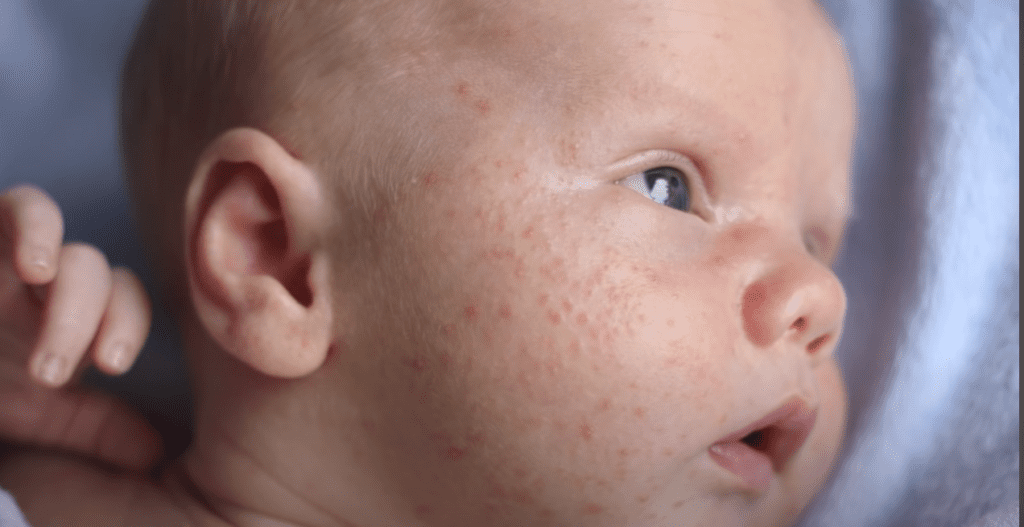Understanding Eczema: Causes, Symptoms, and Effective Management
Eczema, or atopic dermatitis, is a widespread skin condition that causes dry, itchy, and irritated skin. It often leads to redness, swelling, and the formation of blisters or crusts. Eczema can be a source of discomfort and frustration for those who suffer from it, but with proper understanding and management, it is possible to alleviate symptoms and improve Eczema can significantly impact the daily lives of those affected by the condition. In this article, we will explore the causes, symptoms, and effective management strategies for eczema.
1. What is Eczema?
It is a skin condition that causes dry, itchy, and inflamed patches of skin. It is not contagious and can start in childhood but continue into adulthood. It tends to come and go in flare-ups, with periods of remission followed by periods of increased symptoms.
2. Types of Eczema
There are several different types of eczema, each with its own unique characteristics. The most common types of this disease are atopic dermatitis, contact dermatitis, nummular, and seborrheic dermatitis. While they share some similarities, the causes and triggers for each type may vary.
3. Causes of Eczema
The exact cause of this is not known, but it is believed to result from a mix of genetics and environmental factors. If you have a family history of eczemaa, asthma, or allergies, you are more prone to developing the condition. Additionally, environmental factors such as irritants, allergens, and changes in temperature or humidity can trigger or worsen these disease symptoms.

4. Signs and Symptoms
The symptoms of this can vary from person to person, but common signs include dry, scaly skin, intense itching, redness, swelling, and the formation of small bumps or blisters. In some cases, the skin may become thickened and develop a leathery texture due to chronic scratching.
5. Diagnosing Eczema
It typically involves a thorough examination of the affected skin and a review of the individual’s medical history. In some cases, additional tests may be performed to rule out other skin conditions or allergies that could be contributing to the symptoms.
6. Triggers for Eczema Flare-ups
Identifying and avoiding triggers is crucial for managing this effectively. Common triggers include certain foods, allergens such as pollen or pet dander, harsh chemicals, fragrances, and extreme weather conditions. Stress and emotional factors can also play a role in triggering flare-ups.
7. Management and Treatment Options
While there is no cure for this disease, there are various management and treatment options available to help control symptoms and reduce flare-ups. These may include the use of topical corticosteroids, moisturizers, antihistamines, and immunomodulators. In more severe cases, doctors may suggest using medications or phototherapy as treatment options.
8. Skincare Routine for Eczema
Establishing a proper skincare routine is crucial for individuals with this disease. This includes gentle cleansing with mild, fragrance-free products, regular moisturization using emollients or ointments, and avoiding harsh soaps or hot water that can further dry out the skin. After bathing, it is important to apply moisturizer right away to keep the skin hydrated.
9. Natural Remedies for Eczema
In addition to conventional treatments, some individuals may find relief from this disease symptoms through natural remedies. These can include the use of natural oils, such as coconut oil or evening primrose oil, oatmeal baths, and herbal extracts like chamomile or calendula. Before attempting any natural remedies, it is important to consult with a healthcare professional.

10. Lifestyle Modifications to Manage Eczema
Making certain lifestyle modifications can greatly help in managing this disease. This includes wearing soft, breathable fabrics, avoiding excessive heat or sweating, maintaining a healthy diet, managing stress levels, and practicing good sleep hygiene. These changes can contribute to overall skin health and reduce the frequency and severity of this disease flare-ups.
11. Eczema in Children
It is commonly seen in infants and young children, affecting around 10-20% of this population. It can cause significant discomfort and sleep disturbances. The management of this in children may involve gentle skincare routines, avoiding common allergens, and using medications prescribed by a pediatrician.
Also Read – Psychotic Disorder: Breaking the Silence, Inspiring Hope in 2023
12. Eczema and Allergies
There is a strong link between eczema and allergies, known as the atopic march. Many individuals with these disease also suffer from asthma, hay fever, or food allergies. Understanding and managing allergies can help in reducing this disease symptoms and improving overall quality of life.
13. Psychological Impact of Eczema
Living with this can have a significant psychological impact on individuals. The constant itching, discomfort, and visible skin changes can lead to self-consciousness, low self-esteem, and even anxiety or depression. It is important to address the emotional aspects of this disease and seek support when needed.
14. Coping with Eczema: Support and Resources
Living with this can be challenging, but there are numerous support groups, online communities, and resources available to provide guidance and emotional support. Connecting with others who understand the condition can be helpful in coping with the day-to-day challenges of this disease.
15. Conclusion
It is a complex skin condition that requires a comprehensive approach to management. By understanding the causes, symptoms, triggers, and treatment options, individuals with this can effectively manage their symptoms and improve their quality of life. Remember, it is essential to work closely with healthcare professionals to develop a personalized treatment plan that addresses your specific needs.
FAQs (Frequently Asked Questions)
1. Can eczema be cured? It cannot be cured, but it can be effectively managed with proper treatment and lifestyle modifications.
2. Is eczema contagious? No, it is not contagious. It is a non-infectious skin condition.
3. Are there any specific foods to avoid with eczema? Certain foods, such as dairy products, eggs, wheat, and soy, may trigger this flare-ups in some individuals. It is advised to identify personal triggers through an elimination diet or consultation with a healthcare professional.
4. Can stress worsen eczema symptoms? Yes, stress can be a trigger for this flare-ups and can worsen symptoms. Managing stress through relaxation techniques and stress-reducing activities can help in managing this disease.
5. Can eczema develop in adulthood? While it often begins in childhood, it can also develop for the first time in adulthood. It is essential to seek medical advice for an accurate diagnosis and appropriate treatment.
For More – Eczema on More Descriptive Way!




